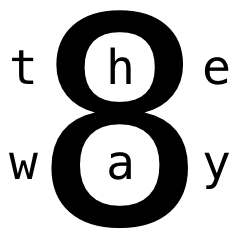First off, tip o' the hat to Merlin Mann. My title is a reference to an episode of his productivity podcast "Back to Work," cohosted by Dan Benjamin over at the 5by5 Network. It's worth the listen. Well, nearly everything there is worth a listen.
I tend to get really angry when people leave notes in a common space. I'm not talking about posted instructions or reminders. I'm talking about those snarky little notes that say, often in all caps, "YOUR MOTHER DOESN'T LIVE HERE. CLEAN UP AFTER YOURSELF," and usually end with an advanced ""Thank You"" that acts as a veiled threat. First of all, don't talk about my mother that way! Second, it's one of the worst ways to motivate me, or anyone else, to virtue. On the contrary, it provokes me, or anyone else, to anger.
So, stop!
Exit Word, back away from the PC (because no self-respecting Mac user would write such a note ... or use Comic Sans), and walk away.
Why, you might be asking? "Aren't I being helpful?" you ask. Well, no, actually for starters it's cowardly. It's just one more way to avoid confrontation. It may change behavior a few times at best; but, it will eventually fail to be effective. It's like trying to win a war with land mines. Yeah, they are briefly effective. However, they aren't going to achieve victory. And, just like land mines, they can be left around, only to erupt during times of peace. Because, you see, the problem that caused you to write the note wasn't solved at the root. The resulting resentment will lead to gossip and grudge holding — two of the greatest barriers to a healthy community.
Writing a note like this in Comic Sans just adds insult to injury. It's a feeble attempt to mask the underlying anger. It's the written equivalent of sarcasm. One of my Dominican brothers wisely noted that sarcasm is "anger with a smile." The results of both sarcasm and "helpful" Comic Sans notes are the same. And the vice at the root of the problem is the same, viz., cowardice.
I think sometimes the problem is that confrontation is often confused with being uncharitable. But, in reality, it's uncharitable to not confront bad behavior directly. The common term for this sort of uncharitable behavior is passive aggressiveness. Acting in a passive agressive way reveals a lack of mature emotional integration. In other words, put on your big kid pants and act like a mature adult.
The opposite of passive aggressive behavior is not aggressive behavior. The opposite behavior is fraternal correction. But, you can't just go around confronting people and call it fraternal correction. The practice of this virtue requires a number of things to be in place first. It isn't simply confronting someone in a nice way. It isn't simply confronting someone in a kind way. It's confronting someone in a charitable way.
In order to do this properly we must first be willing to bear the wrong that we've received patiently. It's natural to be angry when we experience a wrong. But, that anger should not control us. It should simply move us to correct the injustice we've experienced. Feelings of anger should quickly give way to pity. Pity should ignite in us a desire to be both merciful and helpful. Remember what Gandalf told Frodo about pity? In mercy we understand the words of St. Augustine, "But for the grace of God, there go I." Thus, the help offered should be born out of Charity. We should desire the good of the person who did harm more than our own relief from the injustice inflicted. We must truly desire the greatest good of the other for his own sake. It's also necessary to realize, and this is tough, that even if you do all of this perfectly your efforts may still fail. Fraternal correction can happen only after all of these have taken place.
Yep. It's hard; but, it's the right thing to do. It's called loving your enemies. It's one of the most difficult things in the Christian life.

